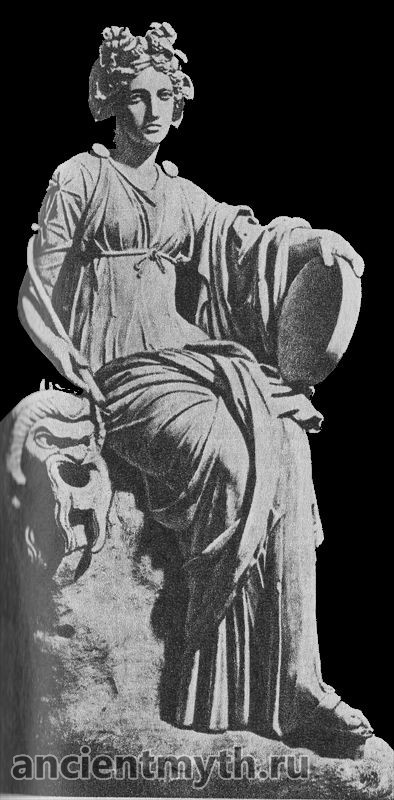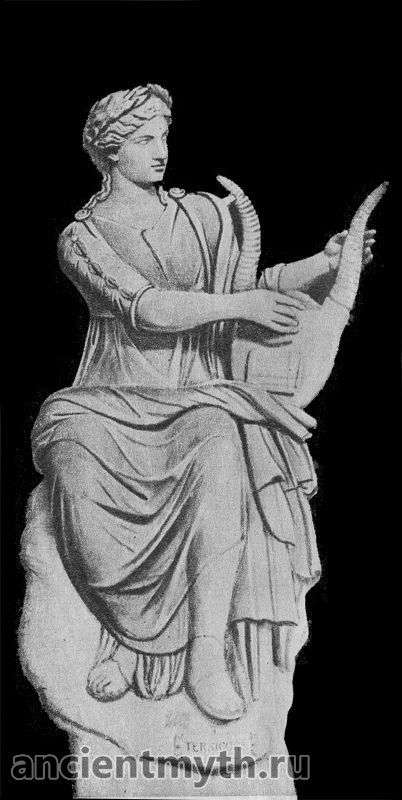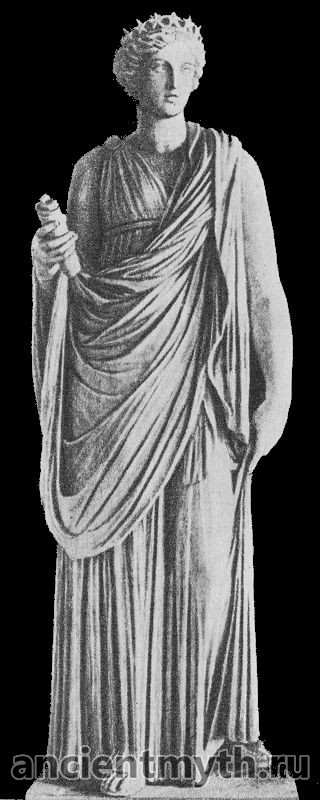Apollo and the Muses
In spring and summer, on the slopes of the wooded Helicon, where the sacred waters of the Hippocrene spring murmur mysteriously, and on the high Parnassus, near the clear waters of the Castalian spring, Apollo leads a round dance with nine muses. Young, beautiful muses, daughters of Zeus and Mnemosynes, are constant companions of Apollo. He leads the choir of the muses and accompanies their singing by playing on his golden kithara.
Apollo walks majestically in front of the choir of muses, crowned with a laurel wreath, followed by all nine muses: Calliope - the muse of epic poetry, Euterpe is the muse of lyrics, Erato - muse of love songs, Melpomene - muse of tragedy, Taliya - muse of comedy, Terpsichore is the muse of dancing, Clio - muse of history, Urania - muse of astronomy and Polyhymnia is the muse of sacred hymns. Their choir thunders solemnly, and all nature, as if enchanted, listens to their divine singing.
When Apollo, accompanied by the muses, appears in the host of gods on the bright Olympus and the sounds of his kithara and the singing of the muses are heard, then everything on Olympus falls silent. Forgets Ares about the noise of bloody battles, lightning does not sparkle in the hands of the cloudmaker Zeus, the gods forget strife, peace and silence reign on Olympus. Even the eagle of Zeus lowers his mighty wings and closes his keen eyes, his menacing squawk is not heard, he quietly slumbers on the staff of Zeus. In complete silence, the strings of Apollo's kithara sound solemnly. When Apollo merrily strikes the golden strings of the cithara, then a bright, shining round dance moves in the banquet hall of the gods. Muses, harits, forever young Aphrodite, Ares with Hermes - everyone participates in a merry round dance, and in front of everyone goes the majestic virgin, sister of Apollo, the beautiful Artemis. Bathed in streams of golden light, the young gods dance to the sounds of Apollo's kithara.


